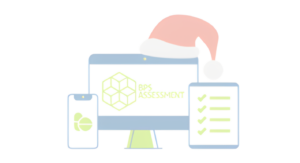Passing the UK PSA exam on your very first attempt isn’t about luck, it’s about smart, focused preparation. In this blog, we’ve put together a handy guide on how to approach your PSA exam with confidence and accuracy.
1. Get to know the exam inside and out
Begin by mastering the PSA’s structure. It features eight distinct question items: Prescribing, Prescription Review, Planning Management, Providing Information, Calculation Skills, Adverse Drug Reactions, Drug Monitoring, and Data Interpretation. Each question item has its own scoring allocation and demands. Understanding which sections carry the most marks is vital for strategically allocating your time and focus.
2. Harness the power of PSA Prep eLearning
A great way to deepen your understanding of the PSA’s structure is by accessing the free PSA Prep eLearning modules from the BPS Assessment Learner Portal. These nine sessions guide you through the structure of exam, the skills expected, what examiners are looking for, and how to avoid common pitfalls.
3. Get speedy with the BNF
Efficiently using the BNF resources during the exam can save you precious minutes. You may have access to both Medicines Complete BNF and BNFc, and the NICE BNF and BNFc (if in the UK). Familiarise yourself with both resources, focusing on navigating through different sections and finding the information you need effectively.
4. Practise with official practice papers
Use the built-in practice papers from your exam account. These should give detailed feedback across all eight question types, helping you build speed, accuracy, and confidence.
5. Simulate exam conditions with timed practise
Time pressure during the exam is a factor that many trainees struggle with. Emulate the real PSA by tackling practice papers within a strict time limit. This helps you identify where you’re losing time and which question types need extra attention.
6. Focus your revision strategy
Because not all questions weigh the same, tailor your revision:
- Prioritise sections 1 & 2; Prescribing (80 marks) and Prescription Review (32 marks).
- Reinforce weaker areas like calculation skills or data interpretation.
- Use each practice session to review mistakes and strengthen areas of uncertainty.
7. Reinforce safe prescribing practice
The PSA is not just about passing an exam; it’s about cultivating safe, effective prescribing habits. Use study materials to focus on dose accuracy, monitoring requirements, adverse reaction recognition, and patient communication skills. All of which add up to ensure you are the safest and most competent prescriber you can be.
8. Use a structured study plan
Build a schedule that dedicates time to each question section, includes regular timed practice, and allows for progress review. This disciplined approach ensures consistent improvement without last-minute cramming.
9. Seek other trusted sources of preparatory materials
The UK Foundation Programme has started a signposting site aimed at resident doctors taking the PSA, but these are also very useful for undergraduates: https://foundationprogramme.nhs.uk/curriculum/prescribing-safety-assessment-psa/preparation-resources-for-sitting-the-psa/
10. Stay calm, confident, and positively prepared
Your mindset matters. Approaching the exam with optimism and trusting in your preparation can make all the difference. Thorough revision fosters confidence!
TLDR: Key Takeaways for Passing the PSA Exam on Your First Go
| Strategy Focus | Why It Matters |
| Know the PSA structure | Helps you allocate time to higher-value sections |
| Use PSA Prep modules | Builds familiarity and exam strategy |
| Master your prescribing practice | Ensures accuracy on exam day |
| Practice under timed conditions | Boosts efficiency and stress management |
| Review performance | Pinpoints weak areas before they cost marks |
| Seek trusted resources | Builds on your foundations |




